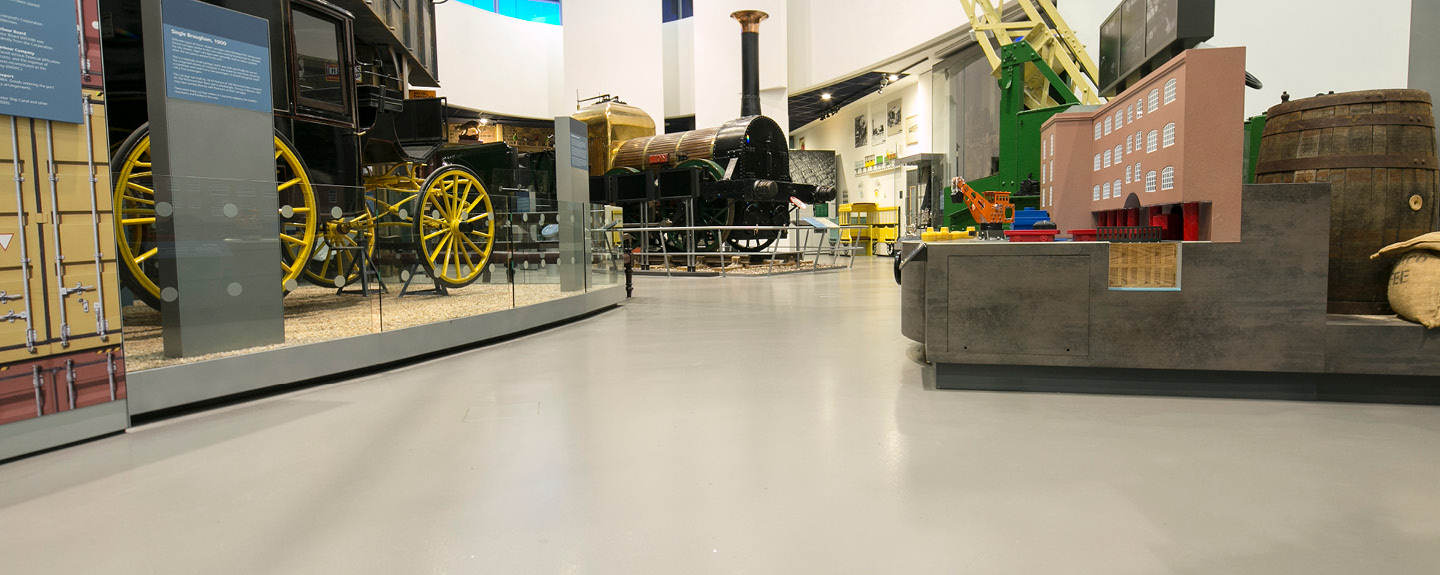Design from the bottom up
By Jeremy Waterhouse, Flooring Product Manager, Sherwin-Williams.
For architects and specifiers designing a new purpose-built construction there is an inevitable draw to the magnificent. But from inspiration to construction, every idea starts from the bottom up, with the correct choice of materials, including epoxy resin flooring.
Leading architects are heavily factoring in the importance of selecting the right surface for its purpose. While older buildings tend to require flooring to be retrospectively applied as they change use, it is more common nowadays for buildings to be purpose-built for one specific function.
At Sherwin-Williams, we have been advising architects around the world for over 150 years and are experts in creating the perfect purpose-designed flooring for any building.
So, where do you begin in designing a floor which is both aesthetically pleasing, hygienic and practical for its designated purpose? Can a food and beverage manufacturing warehouse balance clear safety-first resin flooring with non-slip surfaces that are durable to heavy footfall and extreme temperatures, while staying clean and hygienic?
We believe in fully assessing the more precise needs of the installation before making any recommendations, to ensure that the correct flooring is applied first time, every time. Over the years of providing high quality epoxy resin flooring that is respected around the world, we have worked to develop key thinking points for architects when determining which product is most appropriate to meet the design and practical needs. Considerations should be given to the nature of the environment, the options of relevant industrial flooring types to meet the required standards, the application method, timescales and cost.
It’s always important to establish what cleaning regime will be in operation for a floor installation when it’s in use and whether this has been given any consideration as a specification can be put together to accommodate what cleaning regime is planned.
An important initial decision to be made when determining flooring needs is around the use of the area. Most notably with food and drink establishments and commercial kitchen flooring, it can be exposed to a variation of temperatures. From hot oils to freezing surfaces, the strongest floors must be able to withstand rapid and extreme changes in heat. Our FasTop™ product range offers heavy-
duty polyurethane screed systems which provide superb resistance against chemical attack, abrasion and thermal shock and is a popular choice in the food and drink sector.
Similarly, while temperature changes can create a potential problem for unsuitable flooring, any product must be able to bear the load it will be used for, whether that is as a base for heavy machinery, high volumes of people or vehicular traffic. Durable flooring ranges are created with its use in mind: from the heavy loads that it could be subjected to, through to stress factors such as falling objects which could threaten the integrity of the screed.
Increasingly, the expert scientists in our research and development laboratory at Sherwin-Williams are developing the latest technology around ‘green’ flooring ranges which can meet the same demanding standards while also ensuring that they adhere to strict environmental standards, meaning a healthier work setting for applicators and employees.
A key factor in flooring for many industrial buildings is safety. This varies from reducing potential slip and fall hazards to ensuring the finished product stays hygienic and free from infection. We are finding that contractors in the food and drink sector are asking for flooring products which reduce the risk of contamination. Our flooring does this by providing such hard surface finish and also by having antimicrobial content which is tested to ISO 22196 to reduce and inhibit bacterial growth on the surface of bacterial and fungal organisms such as e-coli, aspergilus niger and salmonella.
Any food and beverage manufacturer will know that the key to good sales is taste and poorly selected epoxy flooring can be a risk to that. Products heavy in chemicals with high levels of Volatile Organic Compounds (VOCs) leave strong odours that can taint the final product, reducing the quality and therefore negatively affecting the bottom line. When designing a floor for a food and drink manufacturer it can be vital to apply a product with low VOCs, like the FasTop TG69 which is non-taint, odourless and fit-for-purpose. Flooring manufacturers work to standards stipulated by bodies such as HACCP International (hazard analysis and critical control point) which certifies food safe products such as FasTop.
Whatever the challenge and the resin flooring system requirements, we believe in making a full and proper assessment of needs to ensure the most relevant solution is used for the immediate and longer term.




